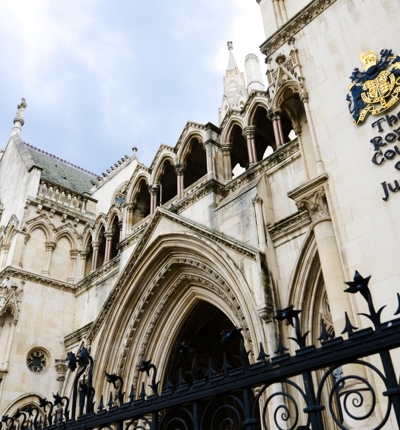
Severely disabled woman wins her claim that council care charges are discriminatory
A 24-year-old Down syndrome woman has won her claim that Norfolk County Council’s decision to increase her care charges is discriminatory.
Posted on 18 December 2020
A High Court judge has ordered Norfolk County Council to look again at the decision to increase the amount it charges severely disabled residents for care and remove any discrimination.
The claimant, known as SH has severe learning difficulties. She also has pernicious anaemia, physical disabilities associated with Down Syndrome, and a compromised immune system.
Yet Norfolk County Council, when recalculating her care charges, treated SH the same as other people affected by the policy but who were able to do paid work.
It reduced her minimum income guarantee, and made the decision to take into account her enhanced benefits, meaning her chargeable income would increase to over £50 a week from April 2021.
But the court noted that the only work SH had been able to do was supported unpaid work experience in a local pub, with jobs such as folding serviettes for one hour.
The care that SH receives from Norfolk County Council is two days weekly in-day services,
12 nights respite care away from home every year and a personal assistant who stays overnight at SH’s home two nights per month. That care support costs the council £356.49 a week.
In April, 2020, SH received £282.05 weekly in benefits, including Employment Support Allowance (ESA), Personal Independence Payment (PIP) and PIP mobility component at the higher rate.
In July, 2019, SH began to be charged £16.88 a week for her care, increased to £20.58 in April 2020, and it was due to increase further but the increase was temporarily delayed by the pandemic.
At the same time, SH’s minimum income guarantee has been reduced from £189 before July 2019, then £165, to £151.45 in April 2020.
In its judgment, the court notes that the council “has exercised its discretion to charge SH the maximum permissible, and, at the same time, has lowered the overall cap on her charges by reducing the council’s minimum income guarantee”.
Mr Justice Griffiths agreed that Norfolk County Council’s charging policy discriminates against severely disabled people, contrary to Article 14 read with Article 1 of Protocol 1 and/or Article 8 of the European Convention on Human Rights.
He ruled that the policy that means the council excludes a person’s earnings from its assessment for care charges formed part of the discrimination against severely disabled residents who are unable to work but are treated as if they would have an earned income as well as benefits. The Judge concluded that charging those with the highest need more than those with lower needs was an unjustified interference with SH’s human rights.
SH’s mother and ‘litigation friend’ MH said:
“We are delighted at the judgment. We have always said the new charging policy by Norfolk County Council was discriminatory and today we have been proved right.
“Now the council will have to think again, properly consider the needs of severely disabled people and make fair provision for them to be able to live their lives with the care that they need.
“My daughter’s care includes the provision of a pathway to prepare for independent life after I am gone. Today’s judgment restores our hope that this will be made possible.”
Leigh Day solicitor Rowan Smith, who represented SH and MH, said:
“Today’s judgment means that Norfolk County Council will have to rethink its discriminatory care charges policy. This is a complete vindication of the bravery our client and her mother have shown to bring this case, which we hope will have an immensely positive impact on the lives of people with disabilities and their families across Norfolk and the whole country. This case would not have been possible without the access to justice afforded to SH by legal aid.
“As the judge said, the discriminatory effect of the measures they imposed was irrational, unnecessary, and wholly out of proportion. There is no lawful basis for the Council continuing with its policy, and we fully expect our client’s human rights to be properly respected when the Council comes to changing it.”
SH benefited from legal aid.
SH was also represented in Court by Zoe Leventhal and Emma Foubister from Matrix chambers.
We understand that Norfolk County Council wont be appealing the judgment.




